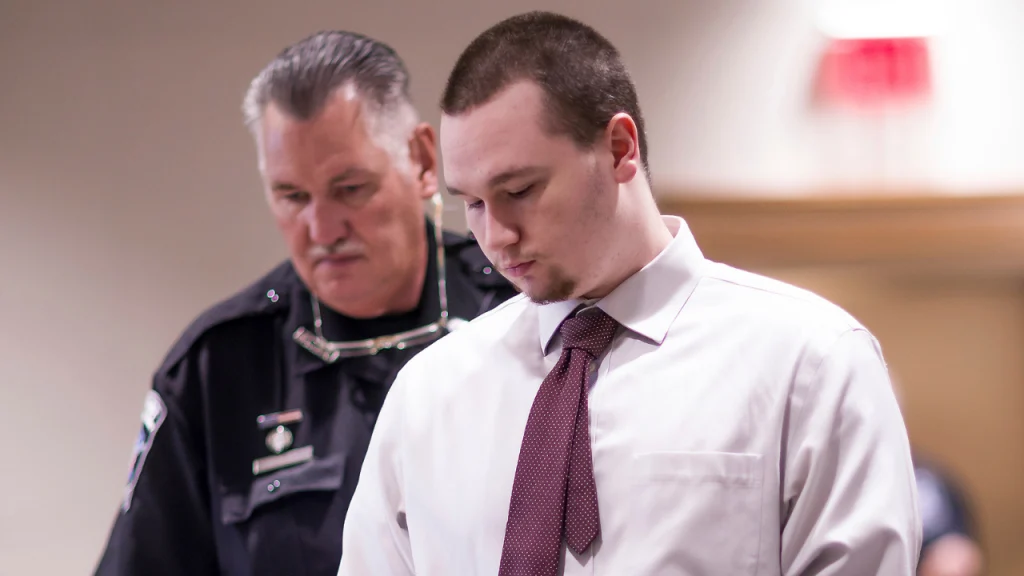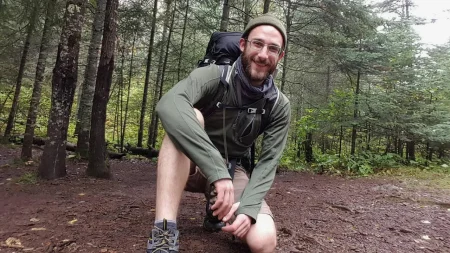Tragic Family Murders: Teen Faces Sentencing for Killing Sister-in-Law and Young Nephews
In a heartbreaking case that has shocked New Hampshire, 19-year-old Eric Sweeney will face sentencing Friday for the murders of his sister-in-law and her two young sons in 2022. Originally charged with first-degree murder, Sweeney pleaded guilty to lesser second-degree murder charges for killing 25-year-old Kassandra Sweeney and her sons, 4-year-old Benjamin and 23-month-old Mason, in their Concord home. What makes this case particularly devastating is that Eric, who was just 16 at the time of the killings, had been living with Kassandra and his brother Sean for three years, with the couple acting as his guardians. The prosecution is seeking substantial consecutive sentences – 35 years to life for Kassandra’s murder and 40 years to life for each of the boys’ deaths, with potential reductions if rehabilitation goals are met. Assistant Attorney General Bethany Durand emphasized the innocent nature of the young victims, stating, “Benjamin and Mason embody the reason why crimes against children deserve the harshest of penal sanctions… They did absolutely nothing wrong, they were innocent and utterly blameless.”
The defense paints a complex picture of a deeply troubled teenager whose actions, while inexcusable, must be understood within the context of his traumatic childhood. According to court documents, Eric had experienced severe neglect and instability throughout his early years – he often lacked stable caregivers, was exposed to environments filled with drugs and violence, and was sometimes seen asking strangers for food while wearing shoes falling apart. His defense attorneys Lauren Prusiner and Morgan Taggart-Hampton argue that a life sentence without parole would constitute cruel punishment given the “immeasurable trauma” Sweeney endured as a child. They note that his mother had “dragged him through drug dens and a succession of abusive father figures,” creating a foundation of severe trauma that contributed to his mental state. The defense has asked the court to “grant Eric some measure of mercy,” acknowledging that he loved those he killed and will “grapple with the consequences of his actions for the rest of his days.”
The circumstances surrounding the murders reveal a household under growing tension. Court documents indicate that relations between Eric and his brother Sean had deteriorated to the point where they were barely speaking, prompting Sean to install a lock on his master bedroom door. More significantly, the couple had begun taking steps to remove Eric from their home, which his defense suggests triggered his actions. Without directly addressing his motive, his lawyers wrote that “his depression deepened. He knew he was on the brink of losing the safest, most loving home he had ever known.” The impending loss of what had become his only stable home environment apparently pushed the troubled teen to a breaking point, culminating in the violent tragedy on August 3, 2022.
The details of the crime paint a heartbreaking picture of lives cut tragically short. Minutes before the murders, Kassandra, who worked nights as a nursing assistant so she could care for her boys during the day, had prepared snacks for her children and was filming them playing and laughing to send to her husband. Shortly afterward, Eric allegedly took a .40 Taurus handgun from his brother’s locked safe and shot Kassandra once in her right eyebrow and both boys in the crown of their heads as they were in the kitchen. Following the shootings, Eric called his brother from Kassandra’s iPhone claiming that “someone broke in and killed them all.” When police arrived at the scene, Sean pulled up in his oil delivery truck, followed by Eric driving Kassandra’s Ford F-150. The teen initially told investigators he had been in the basement when he heard something break and a “deep, male voice yelling followed by multiple ‘pops,'” then claimed he crept upstairs and “stepped over Kassandra and Mason’s bodies” to exit the house.
The investigation revealed inconsistencies in Eric’s story and evidence of his guilt. Despite tree workers being at the end of the driveway, Eric didn’t ask them to call for help after allegedly discovering the bodies. According to court documents, he disposed of the murder weapon by tossing it from the driver’s side window on Interstate 93 before returning to the house. These actions, along with other evidence gathered by investigators, led to his arrest and eventual guilty plea. The case highlights not only the devastating impact of violence within families but also raises difficult questions about juvenile justice, mental health intervention, and the long-term effects of childhood trauma. For the Sweeney family, including Sean who lost his wife and children in this senseless tragedy, the sentencing represents just one step in a lifelong journey of grief and healing.
As the court prepares to determine Eric Sweeney’s fate, the case stands as a stark reminder of how cycles of trauma and neglect can have catastrophic consequences. The prosecution’s call for consecutive sentences totaling nearly a century behind bars reflects society’s need for justice and accountability, particularly for crimes against vulnerable children. Meanwhile, the defense’s appeal for consideration of Sweeney’s own traumatic childhood raises important questions about rehabilitation, mental health treatment, and whether the justice system should consider mitigating factors when sentencing juvenile offenders. Whatever sentence is handed down on Friday, it cannot erase the profound loss suffered by the community and family members. The memories of Kassandra, a dedicated mother who worked nights to care for her boys during the day, and her young sons Benjamin and Mason, whose lives barely had a chance to begin, will continue to resonate with all who knew them and those who learn of their tragic story.







